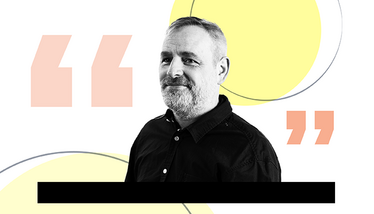Polio Vaccine Rollout in Gaza Commences
A campaign to vaccinate 640,000 children against polio in Gaza has begun, but success will depend on the complexity of the challenges, and the vital role of the pharmaceutical industry.

Health Ministries in Israel and Gaza have agreed to launch a mass polio vaccination campaign to immunize 640,000 children against the poliovirus. Regular pauses in fighting have been agreed following the case of a baby who was left partially paralyzed by the circulating variant type 2 poliovirus (cVDPV), which was isolated from wastewater samples from the cities of Khan Younis and Deir al Balah in July. Consistent bombardment of Gaza by Israeli forces has destroyed the Strip’s sanitation infrastructure and resulted in the ideal breeding ground for polio, which appears to have returned from near worldwide eradication. UNICEF and the WHO have been helping to rapidly administer both the oral and inactivated form of the polio vaccines.
The campaign highlights the ongoing demand for polio vaccines in regions with vulnerable healthcare infrastructures, but there will be challenges for pharmaceutical companies as the ongoing conflict continues to impact vaccine accessibility and distribution. Companies specializing in logistics, cold chain management, or supply chain solutions could find opportunities to enhance the efficiency and reliability of vaccine distribution.
Speaking to the BBC, Chief of Communication at UNICEF State of Palestine Jonathan Crickx said, “You cannot lead and implement a polio vaccination campaign in an active combat zone. It’s simply impossible … This is a huge endeavour. Especially in a place like the Gaza Strip where we know that, for example, roads have been damaged, that access is problematic, that security incidents take place on a daily basis.”
International health organizations and local authorities are involved in the campaign, exemplifying the importance of public-private partnerships. Aside from the value in supporting such initiatives, there could also be found the potential for innovative delivery technologies and methods such as drones and other unmanned aerial vehicles. Companies engaged in such efforts must acknowledge their collective societal responsibilities alongside commercial interests, corporate reputations, and long-term business strategies.
The WHO says at least 90 percent of Palestinian children need to be immunized, if the campaign is to be effective, but in troubled times, the ability of political and military leaders to open and maintain appropriate avenues for relief is a must.
The pharmaceutical industry plays a crucial role in responding to public health emergencies, as was observed during the COVID-19 pandemic and the more recent mpox outbreak in Africa. In underserved, war-torn regions, the challenges, as well as the risks, become even greater.
What are your thoughts on the role pharmaceuticals manufacturers can play?
Following a Bachelor’s degree in English Literature and a Master’s in Creative Writing, I entered the world of publishing as a proofreader, working my way up to editor. The career so far has taken me to some amazing places, and I’m excited to see where I can go with Texere and The Medicine Maker.



















